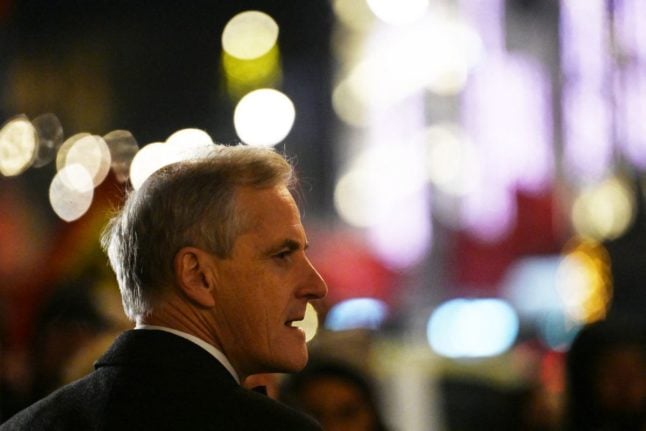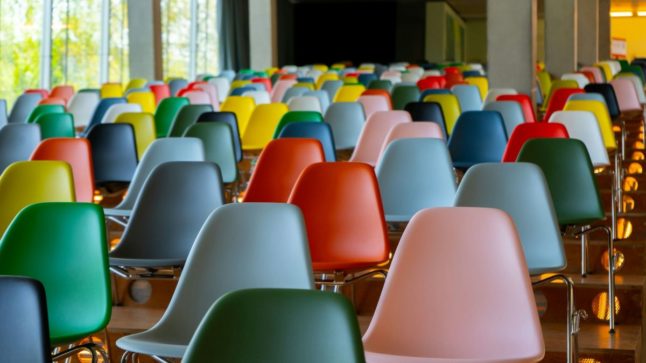Centre Party (SP) MP Oddmund Løkensgard Hoel was announced as Minister of Higher Education and Research on Tuesday after his predecessor, Sandra Borch (SP), stepped down amidst a plagiarism scandal.
The scandal also threatened to topple Minister of Health Ingvild Kjerkol after the Labour Party MP (AP) also faced accusations of plagiarism.
What is the latest scandal?
Borch resigned after Norwegian media highlighted similarities between her 2014 master’s thesis and other research.
“I used the texts of other dissertations without quoting the source. I am sorry,” the former minister said at her resignation press conference.
Health Minister Ingvild Kjerkol has also been accused of plagiarism.
Nord University has launched an investigation to determine whether the accusations bear any weight.
The investigation was set to take several weeks, and for the time being, Prime Minister Jonas Gahr Støre said he would stand by the minister for now.
Kjerkol has denied plagiarising the work of others but said that her referencing was poor.
But it’s not the first scandal?
The latest scandal is just one of a number that has rocked Norwegian politics over the past two years.
The PM has already had to replace nearly half his ministers in connection with various offences in the first two years of his government.
Norway’s former Minister of Defence Odd Roger Enoksen had to step down after it was revealed that that he had a years-long affair with a much younger woman he met while she was reportedly still an 18-year-old high school student.
Meanwhile, Tonje Brenna, Minister of Labour and Social Inclusion, and former Culture Minister Annette Trettbergstuen were accused of appointing friends and acquaintances to public boards.
Norway’s former foreign minister Minister Anniken Huitfeldt was relieved of her role after it was revealed that her husband had traded shares while she was in office – which goes against parliamentary guidelines.
Former Education Minister Ola Borten Moe (SP) was also found to be in breach of the rules with his own share trading.
Deputy Leader of the Labour Party Hadia Tajik was ousted after it emerged she had exploited a loophole on commuter homes.
Not all of these scandals are confined to the government, either. Norway’s popular former PM, Erna Solberg, was embroiled in controversy after it was revealed that her husband traded thousands of shares while she was PM.
Bjørnar Moxnes, former leader of the far-left Red Party, was even caught shoplifting and subsequently trying to cover the incident up.
Why do these scandals keep happening?
This is the question Støre must want answered after yet another scandal, especially in a country which is not used to such frequent controversies surrounding government ministers.
It’s not just a question that the government wants answered, an ethics committee in Norway’s parliament launched a probe last year to try and find an answer and to look at whether the guidelines need tightening.
Their report could shed some light on why so many scandals have hit the current government.
One view held by some experts in Norway is that the press are simply better at revealing scandals these days, especially ones that happened years before.
University of Bergen Professor Yngve Flo told the Norwegian newspaper Aftenposten that it was easier for the press nowadays to uncover rule breaches long after ministers had initially broken the rules.
“It may be that the circumstances that are uncovered now, would not have been uncovered earlier. We have a more approachable press and public. We also have other and better tools to follow the ministers. The plagiarism case is a good example of that,” he said.
Therefore, there may not be much more rule-breaking going on, it may just be easier for public officials to be held accountable.
But that doesn’t make it any easier for the government to explain.
Another explanation could be found in the fact that many ministers end up being enveloped in the same scandal. More than one politician has been involved in the commuter housing, share-trading and conflict of interest scandals.
This could point to the parliamentary rules not being clear enough, or the mechanisms to enforce them not being good enough.
Although, this doesn’t explain scandals that see politicians end up in hot water outside of work, such as with the affair, shoplifting and plagiarism scandals.
What does this mean for the government?
Norway’s embattled prime minister has struggled in the polls, and last autumn saw the Conservative Party (H) leapfrog the Labour party as Norway’s biggest party in terms of total votes in a set of local or national elections for the first time in 99 years.
The Centre Party, which is part of a minority government with Labour, has struggled in the polls too.
Overall this gives the public the perception of a government prone to crisis, and the latest series of events comes less than six months after Støre reshuffled his government in an attempt to put poor election results and previous scandals to bed.
Why is all this unusual in Norway?
In Norway, politicians and public officials are required to follow habilitetsregler. These can be translated to “competence” or “impartiality” rules. The competence refers to the ability to make sound decisions and act responsibly.
When someone is found to have breached these guidelines, they are found to be “inhabil”, which translates to impartial or incompetent.
In the words of the Norwegian government on its website, “The purpose of the habilitetsreglene (the impartiality/conflict of interest rules) is to ensure correct decisions and contribute to maintaining trust and credibility in the administration.
Every government will say that it strives to maintain the trust of the public, but Norway is one of the few countries that actually manages to achieve this.
Figures from 2022 showed that 63.6 percent of Norwegian citizens trusted their government, according to numbers from the OECD.
Those figures placed Norway fifth overall in terms of countries ranked by the public’s trust in government. In comparison, just 39 percent of those in the UK said they trusted their government. Faith in the government among Americans was lower at 31 percent.
The public in Norway is simply not as used to political scandals as other nations where scandal-prone ministers are bounced from job to job, or public figures continue to “fail upwards”.
Therefore, the fact that the The PM has seen more resignations triggered by scandal than the previous two prime ministers, who led for eight years each, has come as quite a shock to many.
In fact, between 2005 and 2021, just eight ministers in Norway resigned amidst scandal, compared to the current seven.



 Please whitelist us to continue reading.
Please whitelist us to continue reading.
Scandals have little to with rules, regulations or enforcement. Scandals are a result of children raised without much discipline, love and guidance. Those children simply age into adulthood living with the same bad morals.
I defy any one of those people mentioned caught red-handed to honestly say ‘I didn’t know’
They each knew exactly what they were doing, and simply hoped to get away with it. If you think I’m wrong, then show me when their morals guided them to stop that behavior BEFORE they were caught.